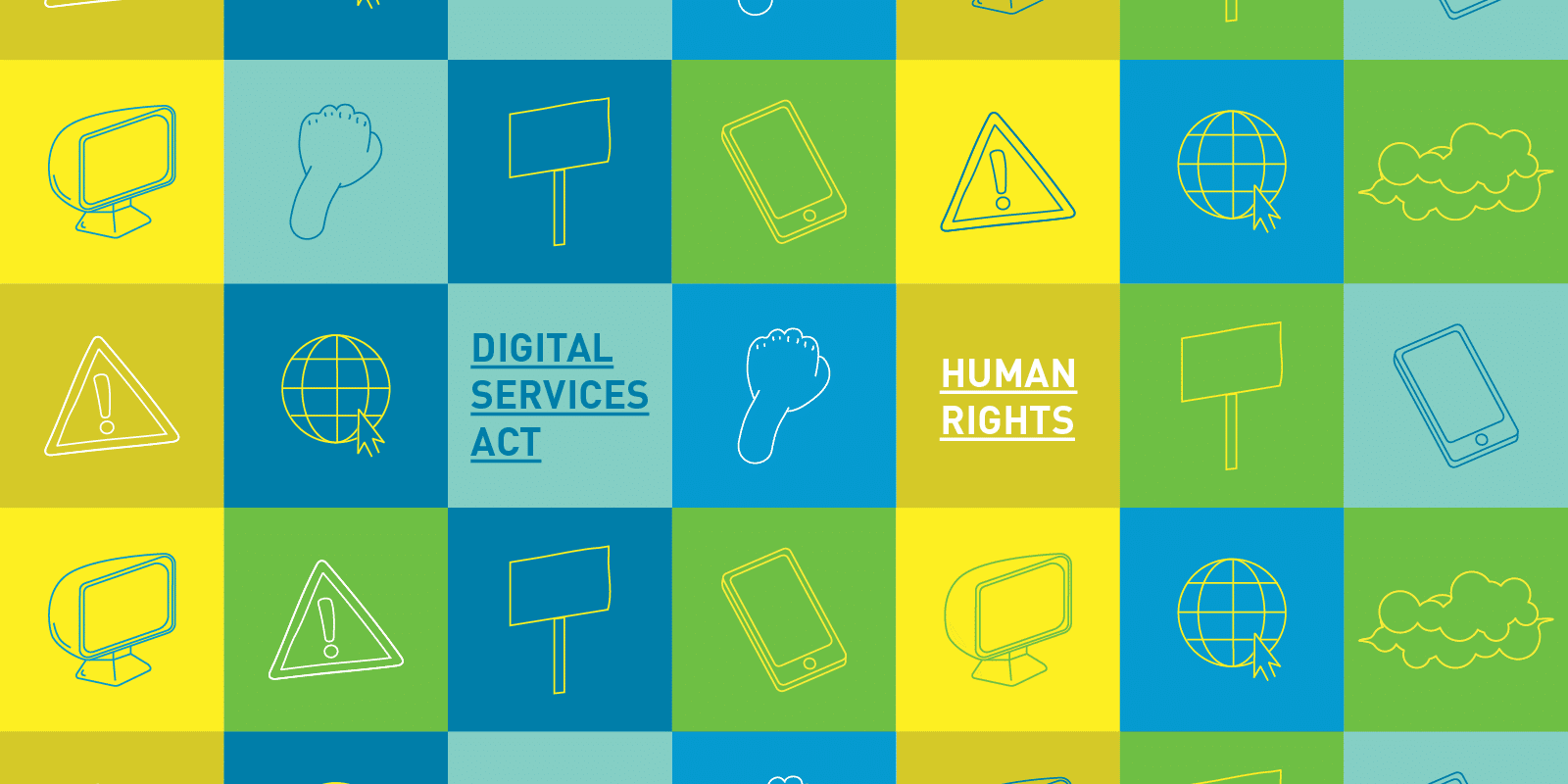The EU Digital Services Act (DSA) is an ambitious proposal with the potential to empower people in today’s online ecosystem. It is the first legislative proposal worldwide that seeks to establish systemic regulation of Big Tech platforms like Facebook or Google to address their impact on public discourse. If done right, the DSA could be an effective tool for preventing the spread of illegal content, protecting fundamental rights, and correcting the power imbalance between users and platforms. Done wrong, however, the DSA could harm the vulnerable communities it is supposed to help, and erode the freedom of expression and opinion — not just in the EU but around the world.
So where does this promising regulation stand now? And what needs to happen to ensure its efficacy? We look at the introduction of the DSA, how the negotiations have progressed, and where we need to go from here to safeguard human rights.
How it started
When the European Commission introduced the DSA in December 2020, Access Now welcomed it with great enthusiasm. The DSA aims to stop the spread of illegal content online — a systemic issue — using a systemic approach. It sets out responsibilities for online platforms, or intermediaries, for tackling illegal content, integrating due diligence standards and processes for content takedowns that are designed to protect the user. Since the DSA’s introduction, the issue of platform governance has only become more urgent. Policymakers around the world are looking to the EU as a global trendsetter in internet regulation. Now that the DSA has reached the negotiation process, we want to remind Members of Parliament that with the big political momentum behind the DSA comes huge responsibility. It is time to leave behind shortsighted legislative responses and enact systemic regulation that can uphold people’s rights.
The current state of play and how we got here
Despite the various shortcomings of the DSA initial draft the European Commission prepared, it continues to represent a promising and novel approach to platform governance. The draft focuses on regulating the processes online platforms deploy, rather than focusing on rules for specific categories of illegal content or illegal conduct.
In the comments we delivered to the Commission as a part of the public consultation in April 2021, we support the drafters’ intention and present our ideas for advancing concrete provisions on meaningful transparency; enforcement of platforms’ terms of service; due diligence safeguards such as risk assessment and risk mitigation measures; and better regulation of content recommender systems that strengthen users’ control. Since these recommendations depart from the Access Now position on the DSA published last year, we developed a set of proposed amendments addressing due diligence obligations for a transparent and safe online environment, and effective enforcement and oversight. We delivered this to members of responsible committees prior to the start of negotiations in the European Parliament.
However, once the negotiations for a compromise position between EU co-legislators were launched, we saw some MEPs support proposals that took a sharp detour from the Commission’s original intent. They include silver bullet “solutions”, such as giving platforms short deadlines for removing illegal content, proposals that endanger the conditional model of intermediary liability, or giving law enforcement authorities disproportionate power. We responded by expressing our concerns about the threat to fundamental rights, delivering a set of proposals to the leading IMCO Committee Opinion on the DSA. We likewise responded to the Committee on Legal Affairs (JURI) on its DSA Opinion, providing ideas to the Committee to mitigate the negative impact some measures in the Opinion would impose.
But that’s not the end of the story. While we are pleased to see some of our proposals taken on board and now reflected in negotiated compromise amendments, we are still witnessing shortsighted measures receive significant support from MEPs, while these complex negotiations continue to evolve. That is why together with the Electronic Frontier Foundation, we drafted a joint letter to the European Parliament in September 2021. In the letter we underline our ongoing concerns. Today, we are still warning MEPs:
- ⮕ Do not dismantle human rights-centric regulation of intermediary liability;
- ⮕ Do not impose unduly short time frames for content removals, as they are unconstitutional and do not comply with the EU Charter of Fundamental Rights;
- ⮕ Do not extend the scope of the DSA for interpersonal communication services;
- ⮕ Avoid preferential treatment of public authorities as “trustworthy” sources for content recommender systems, as trusted flaggers should be independent with relevant expertise; and finally
- ⮕ Do not impose automated proactive measures for detection and identification of allegedly illegal content online, directly or indirectly.
None of this should be part of the DSA.
What’s next
The DSA still has potential. But if MEPs continue to support dangerous measures, such as conditioning exemption from intermediary liability on compliance with due diligence safeguards, or disproportionately expanding the competence of law enforcement authorities, the end result will have far-reaching negative consequences for freedom of expression and opinion. We hope that MEPs pay attention to the red flags we have continually raised. If they push ahead without recognising the threat to human rights, it would not be the first time Europe has unintentionally created a new prototype for global online censorship. The infamous German Network Enforcement Act (“NetzDG”) has served as a model for content governance legislation from Ethiopia to Singapore, with controversial results.
Things are moving fast, and the European Parliament plans to vote on its final compromise position in December. That is an aggressive timeline given the complexity of ongoing negotiations and the over-2,000 amendments the leading parliamentary committee is discussing. Regardless of whether we see a delay, we stand ready to provide recommendations to the Parliament on how to stay on the right course.
